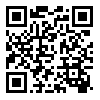Volume 26, Issue 4 (12-2020)
Research on Information Science and Public Libraries 2020, 26(4): 665-695 |
Back to browse issues page
Download citation:
BibTeX | RIS | EndNote | Medlars | ProCite | Reference Manager | RefWorks
Send citation to:



BibTeX | RIS | EndNote | Medlars | ProCite | Reference Manager | RefWorks
Send citation to:
Vaziri E, FeizAbadi M, Delbari A, Sakhaei A. Identifying the needs and services expected by the elderly from the Iran public libraries: Content analysis. Research on Information Science and Public Libraries 2020; 26 (4) :665-695
URL: http://publij.ir/article-1-2282-en.html
URL: http://publij.ir/article-1-2282-en.html
Department of KIS, University of Zabol, Zabol, Iran , evaziri@ut.ac.ir
Abstract: (3871 Views)
Purpose: The world population is growing older. According to the previous anticipations, it seems that Iran's elderly population continues to increase dramatically in the future. While 8% of the total Iranian population was the aged people in 2015, it is expected to increase by nearly 33% of Iran's population by 2050. Therefore, the existence of the centers to fulfill the needs of the elderly is a matter of great importance. Among all these centers, public libraries play a vital role in providing services to the elderly. Identifying the various needs of the elderly can lead to success in both designing and planning services offered by public libraries to them. This study thus aims at identifying the services expected by the elderly from public libraries in Iran.
Method: The present study, by using the qualitative and quantitative content analysis in order to identify themes and count the frequency of the analysis units, identified the needs, services of Iranian public libraries for the elderly through conducting semi-structured interviews. The sample of study included 14 librarians working in public libraries and 11 elderly people and caregivers that were selected purposefully. Data were analyzed using the MAXQDA12.3 based on the analysis units (sentence).
Findings: The analysis of the interviews revealed six categories. According to the frequency of interviewees' opinions, the following categories were extracted: library resources, services, and plans, accessibility, needs determination, contribution to policy-making and planning, staffing, and marketing and advertising. The higher frequency of each category was found in: implementing plans on-site at library, the issues concerning library's building and space, identifying various needs, training the librarians, traditional ways of marketing and advertising, and involving the volunteer elderly people in the library programs. 42 percent of all identified codes referred to the categories of the required sources, services and plans for the elderly. Identifying elderly's required services, considering their complex needs and providing them through public libraries can help the elderly to maintain their independence and to have an active role in contributing to the society. Moreover, interaction and cooperation between public libraries and other organizations supporting the elderly, training librarians in the skills of communication with the elderly, appropriate policy making in acquisition, budgeting, and providing the necessary equipment and facilities can improve the programs and services old people need.
Originality/value: library resources, services, and plans and accessibility of the library were the two significant priorities expected by the elderly from the public libraries. For this reason, considering that the old age population is likely to grow in the future, it is necessary to provide appropriate policies and budgeting plans to offer more desirable services. Better use of library services by the elderly requires considering the peculiarities of old age. Providing these facilities leads to attracting a few more people to the libraries.
Method: The present study, by using the qualitative and quantitative content analysis in order to identify themes and count the frequency of the analysis units, identified the needs, services of Iranian public libraries for the elderly through conducting semi-structured interviews. The sample of study included 14 librarians working in public libraries and 11 elderly people and caregivers that were selected purposefully. Data were analyzed using the MAXQDA12.3 based on the analysis units (sentence).
Findings: The analysis of the interviews revealed six categories. According to the frequency of interviewees' opinions, the following categories were extracted: library resources, services, and plans, accessibility, needs determination, contribution to policy-making and planning, staffing, and marketing and advertising. The higher frequency of each category was found in: implementing plans on-site at library, the issues concerning library's building and space, identifying various needs, training the librarians, traditional ways of marketing and advertising, and involving the volunteer elderly people in the library programs. 42 percent of all identified codes referred to the categories of the required sources, services and plans for the elderly. Identifying elderly's required services, considering their complex needs and providing them through public libraries can help the elderly to maintain their independence and to have an active role in contributing to the society. Moreover, interaction and cooperation between public libraries and other organizations supporting the elderly, training librarians in the skills of communication with the elderly, appropriate policy making in acquisition, budgeting, and providing the necessary equipment and facilities can improve the programs and services old people need.
Originality/value: library resources, services, and plans and accessibility of the library were the two significant priorities expected by the elderly from the public libraries. For this reason, considering that the old age population is likely to grow in the future, it is necessary to provide appropriate policies and budgeting plans to offer more desirable services. Better use of library services by the elderly requires considering the peculiarities of old age. Providing these facilities leads to attracting a few more people to the libraries.
Type of Study: qualitative |
Subject:
Libraries Services for Special Groups
Received: 2020/10/29 | Accepted: 2020/12/22 | Published: 2021/02/28
Received: 2020/10/29 | Accepted: 2020/12/22 | Published: 2021/02/28
Send email to the article author
| Rights and permissions | |
 |
This work is licensed under a Creative Commons Attribution-NonCommercial 4.0 International License. |





